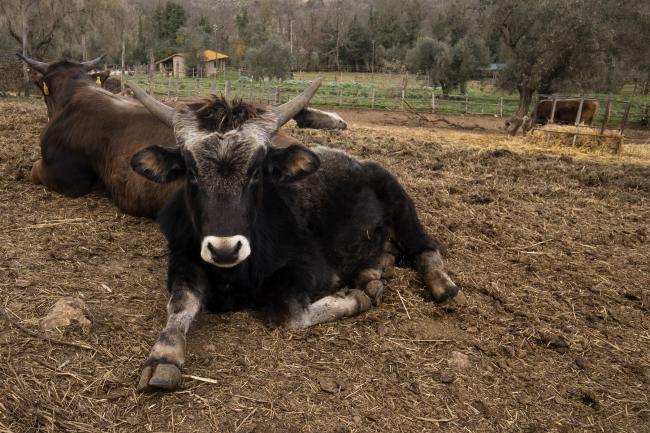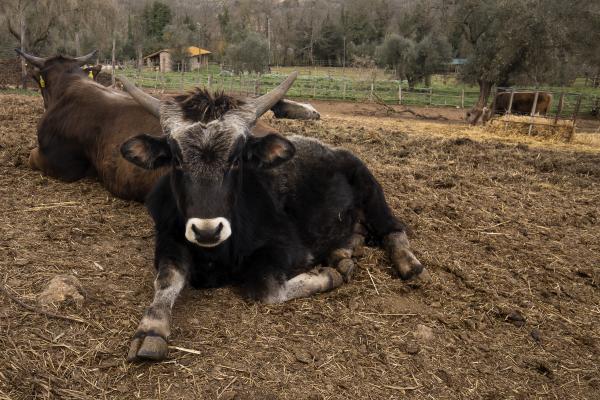The Tuscan calf: innovative growth strategies

Increase and enhance beef production in Tuscany through:
- use of sexed semen from dairy bulls on dairy cattle aimed to create the replacement of those latter;
- use of semen from meat bulls on dairy cows aimed to produce crossbred calves;
- creation of weaning plants and fattening plants for crossbred calves;
- application of CRENBA method;
- technological implementation of the Mugello meat Centre to control and to improve the quality of the production process;
- use of “Toscana-Toscana” for the meat produced;
- verification of the applicability of the label "Benessere animale in allevamento";
- training, information and updating;
- public awareness on quality brands.
- Use of sexed semen on better dairy cows so as to produce only female calves for internal replacement.
- Use of semen from selected beef bulls on other dairy cows, chosen on the basis of easy childbirth and good production characteristics (may be sexed or not).
- Birth of one or more calves weaning pilot plants where it will be possible to test innovative breeding, feeding and prophylaxis techniques, and evaluate the results (qualitative, quantitative, economic).
- Increase and valorisation of Tuscan meat through control of: production process, animal welfare, product quality and greater food safety.
In Italy there is a notable decrease in the production of beef which has led to a greater recourse to imports. In this context there is the need to increase the production of beef in Tuscany by referring to existing farms, even those specialized in the production of milk, using modern breeding techniques, also encouraging the breeding in Tuscany of calves that are currently transferred in Northern Italy, enhancing production through quality improvement and certification and achieving consolidation of the entire supply chain, including commercial aspects.
In implementation of measure 16.1 (first phase) ARAT conducted a fact-finding survey in a significant sample of dairy cowsheds in the provinces of Florence, Grosseto, Livorno, Lucca, Pisa and Siena which involved n. 36 farms in order to highlight above all the type of calves produced (in purity, mestizo, males, females) and their destination, to verify if in Tuscany there is the potential to produce a greater number of meat calves, obtained from dairy cows.
The survey confirms the initial hypothesis proposed by the partners: that of having available a large number of cows to be fertilized with meat bulls seed to obtain mumps that can be weaned and fattened in Tuscany and marketed under the Toscana-Toscana brand, in order to enhance a product, although secondary to milk, but still necessary for the production of the same. In the only stalls surveyed could be recovered over 1150 calves that today are born of pure breed and that are worth very little for the meat market.
| Titolo/Descrizione | Url | Tipologia |
|---|---|---|
|
Sito web del progetto
|
Sito web
|
|
|
Relazione finale del progetto
|
Materiali utili
|

